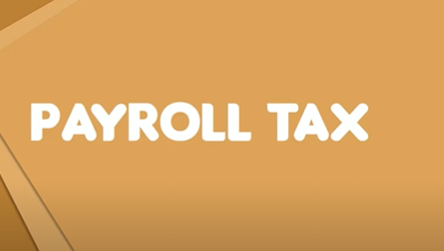Are you trying to navigate the complexities of payroll tax and its implications for your business or personal finances? Understanding what is payroll tax can seem daunting at first, but it’s a crucial aspect of financial and tax planning for both employers and employees. In this guide, we’ll break down the definition of payroll tax, explore its meaning in various contexts, and provide insights into how it affects you.
Payroll Tax Definition and Importance
Payroll taxes are taxes imposed on employers or employees, and are usually calculated as a percentage of the salaries that employers pay their staff. These taxes play a pivotal role in funding social security, healthcare, unemployment, and other social welfare programs.
What is a Payroll Tax?
At its core, the payroll tax meaning encompasses contributions made by both employers and employees towards government programs. These contributions are typically automatic, deducted from each paycheck by the employer and remitted to the government.
Federal Payroll Tax Definition
In the context of the United States, federal payroll taxes include contributions to Social Security and Medicare. The federal payroll tax definition highlights its role in supporting these essential social programs.
Components of Payroll Taxes
Understanding the components of payroll taxes is crucial for both employers and employees. Payroll taxes generally include:
- Social Security and Medicare taxes: Often referred to collectively as FICA (Federal Insurance Contributions Act) taxes.
- Unemployment taxes: Paid by employers to fund state and federal unemployment insurance programs.
- Other deductions: May include state and local taxes, depending on the jurisdiction.
Payroll Tax Rate and Wages Definition
The payroll tax rate varies depending on the specific tax. For example, Social Security tax has a set rate applied up to a certain wage limit, while Medicare tax applies to all wages with an additional surcharge for high earners. Payroll tax wages definition refers to the income subject to these taxes.
Economic Implications of Payroll Taxes
The payroll tax aspect emphasizes the impact of these taxes on employment, business operations, and the economy. These taxes fund vital social programs but also represent a significant expense for businesses and employees.
Payroll Tax Expense and Its Significance
Payroll tax expense definition refers to the total amount an employer spends on payroll taxes. This expense is a crucial consideration in financial planning and budgeting for businesses.
Conclusion
Understanding what is payroll tax is essential for effective financial and tax planning. Whether you’re an employer managing payroll tax expenses or an employee curious about your deductions, grasping the fundamentals of payroll taxes can demystify this crucial component of the tax system. By comprehending the definitions, rates, and economic implications, you’ll be better equipped to navigate the complexities of payroll taxation.
For more detailed information on specific payroll tax rates or to calculate your payroll tax obligations, consider consulting a tax professional or utilizing online payroll tax calculators.

Leave a Reply